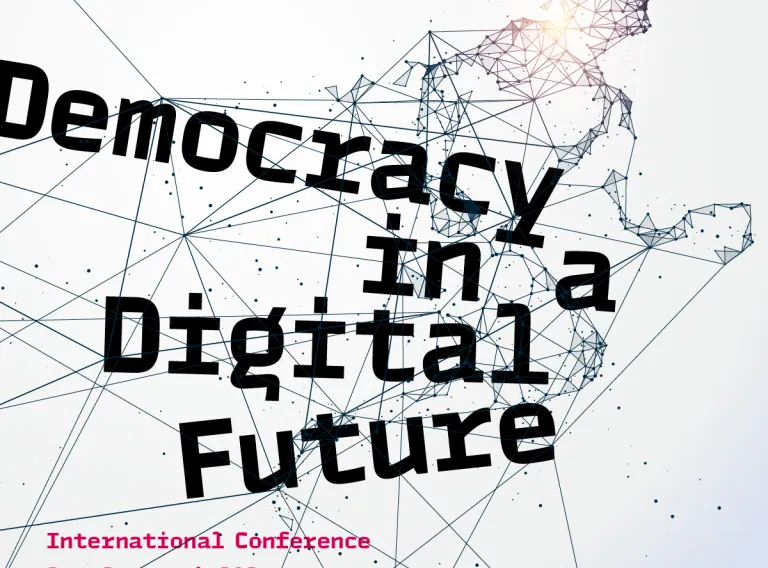
"In the past two decades, digital technological changes - the computer, the internet, smartphones - have had enormous social impact. There was great optimism in the beginning about the possibilities for progress in diverse fields, thanks to this technology, including increasing economic well-being and democracy. "However, various factors undermining this faith have started to emerge," says Irma Erlingsdóttir, associate professor and director of the Edda Research Centre at the University of Iceland. The Centre is organising an exciting international conference in collaboration with the Prime Minister's Office, the Icelandic Parliament and the Media Commission of Iceland on 25–26 March, where both domestic and international experts talk about the threats and opportunities democracy is facing in the 21st century, the age of digital technology.
The conference, Democracy in a Digital Future, is held electronically and in Harpa Conference Centre. The lecturers are academics from a variety of fields, such as political science, philosophy, law, computer science, and technology. They will, alongside politicians and specialists, tackle questions on the role of the government in ensuring that technological advances take note of democratic values, human rights, and the rule of law. Furthermore, the effect of factors like the growth of social media, the spread of fake news, the decline of news media, automation, big data, and the surveillance industry on democracy will be explored.
Technology should take note of the needs of democracy
"There are numerous possibilities in digital technology to increase democratic participation. However, before we can put it to use, we need to ensure that the technology is developed and used with democratic goals in mind. All technological solutions are shaped by social issues and power relations. It has been maintained that the digital revolution has been overly based on economic, military and safety concerns. Democracy has, however, taken the back seat in this context. We are not to make the demand that democracy adapt to the needs of technology, quite the contrary; technology should adapt to the needs of democracy,” says Irma when asked about the technological threats and opportunities democracy faces.
She furthermore points out that we have witnessed increased digital monitoring by the government in recent years, exposed by Edward Snowden in 2013, and the rise of the technological giants such as Facebook, Google and Amazon. "One of the lecturers at the conference, Shoshana Zuboff, professor in business administration at Harvard University, calls these companies surveillance capitalism. This means gathering personal data on individuals and selling it to advertisers, political forces, and even governments. Information such as this gives these parties hitherto unknown possibilities to control citizens' behaviour, e.g. by spreading fake news," says Irma, and asks whether it is possible to safeguard democratic discussion in an information environment controlled in this way. "What happens to autonomy and the right to privacy under close surveillance of private corporations and the government?
A diverse group of lecturers
Zuboff is probably the best-known lecturer at the conference, but she published the book „The Age of Surveillance Capitalism: The Fight for a Human Future at the New Frontier of Power“. She also appears in the Netflix documentary “The Social Dilemma on the influence of social media.
David Runciman, professor of political science at the University of Cambridge, also takes part in the conference publication. He is the author of the book „How Democracy Ends“ published in 2018, and one of two hosts of a bi-weekly podcast called „Talking Politics“.
Other international speakers are Mireille Hildebrandt, professor of law and technology at Vrije Universiteit Brussel, who specialises in the interplay of law, computer science and philosophy, and Virginia Dignum, professor of computer science at Umeå University, who published the book „Responsible Artificial Intelligence: developing and using AI in a responsible way“. The Icelandic academics Jón Ólafsson, María Rún Bjarnadóttir and Jón Gunnar Ólafsson are also present at the conference, in addition to both politicians and specialists from Icelandic society who take part in the panel discussion.
